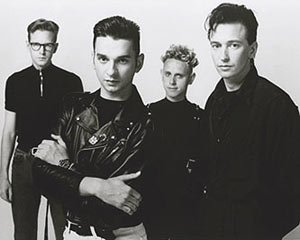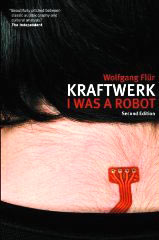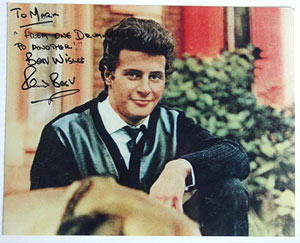Je Suis Margot Tenenbaum: Confessions of a Secret Cigarette Fiend
Published on March 30th, 2009 in: Issues, Smell-O-Rama |By Emily C.
Welcome to Cigarette Fiends Anonymous. My name is Emily C., and I am a secret smoker.
(more…)
By Emily C.
Welcome to Cigarette Fiends Anonymous. My name is Emily C., and I am a secret smoker.
(more…)
By Emily C.

Whenever a vulnerable, slightly introverted band wants you to KNOW that they, in fact, mean business and are hardcore as all hell, they are encouraged to bust out the leather jackets and surly looks. The worst offender of this trend is one of my favorite bands, Depeche Mode. In the early 1980s they wore a little bit of leather, but generally their image was that of sensitive synth-poppers who did sweet songs like “See You” and “Just Can’t Get Enough.” Around 1984, their music took a darker turn into the world of bondage and domination (while still remaining its optimistic poppiness—see “Master and Servant”), and all this leather began to appear in their press photographs. By 1990, when Violator exploded into mass popularity, the band really wanted people to know that yes, they were actually total badasses, and would cut you up with a switchblade outside of whatever local Goth club you were hanging out at. Above is one example of Depeche Mode’s leather-induced surliness.
Notice the one member who is not wearing leather, and who therefore was NOT a team player.
(more…)
By Emily Carney
A review of 1 Top Class Manager can be found here.
“[Journalist] Paul Morley’s line of questioning was about a new underground forming outside the system – how do you see the role of the band? . . . Personally I would rather adopt a different role with regards to everything. . . ”
An excerpt from Rob Gretton’s notebooks, circa 1978
By Emily Carney
A Q & A with Lesley Gilbert, Rob’s widow, can be found here.
Rob Gretton, Joy Division’s manager, has attained legendary status due to his massive presence in Manchester’s musical history, and due to his various depictions in cinema. He’s been portrayed in two major films: 24 Hour Party People (directed by Michael Winterbottom, 2002) and Control (directed by Anton Corbijn, 2007). He has been depicted as being brusque and pint-loving-yet-sympathetic by actor Paddy Considine in 24 Hour Party People; he is rendered as being somewhat harsh and expletive-using by actor Toby Kebbell in Control. A new book, entitled 1 Top Class Manager (referring to Rob referring, well, to himself), consists of Rob’s journals and notebooks from the period between 1978 and 1980, when Joy Division began to make their mark upon the world of popular music. These notebooks set out to “humanize” the myth of Joy Division while underscoring the enormous work it took to make the band successful.
(more…)
By Emily Carney

Wolfgang Flür is best known as being Kraftwerk’s drummer from 1974 to 1991, during their “golden years” when they turned out seminal albums such as Radioactivity (1975) and Trans-Europe Express (1977). This memoir by Flür details his various escapades within the workings of the “Düsseldorf Beatles.”
Flür’s liquored-up memories encompass shameless groupie-guzzling, getting surreally and seriously ill while on tour, and being sexually attacked by an aging alcoholic male German film actor. They climax when Flür is unceremoniously ousted from the band, who have become increasingly obsessed with cycling (to Flür’s utter dismay). Who would have believed the inner workings of Kraftwerk could be so scandalous and sex-soaked? The book was greeted with anger from Kraftwerk’s remaining members, who sued Flür; apparently Ralf Hütter and Florian Schneider were not amused by photographs depicting the Kraftwerk robots in various homosexual activities.
(more…)

Pete Best
Most publications give you their “Best Of” and “Top Ten” lists in their December issues. But what about giving props to of all the great things you embraced in the penultimate month of the year?
That’s why Popshifter has decided to provide you with our favorites now, so that you can add them to your list of “Things To Check Out In 2009.”
In addition to the lists our staff compiled, we’ve also posted the lists from some very special guest contributors.
Enjoy!
(more…)
By Emily C.
While bands like Roxy Music gained much publicity and popularity in the mid-1970s, Duncan Browne’s musical talents—superior in many ways—seemed doomed to fade into obscurity. Duncan Browne was a classical guitarist and singer who began his career in a folk vein with 1968’s Give Me Take You album. In many ways, this album is like the solo work of the Beatles, only less saccharine. Many of these gorgeous-sounding songs wouldn’t seem out of place next to George Harrison’s “My Sweet Lord” (perhaps the best post-Beatles song by any member of that band) with their whispery vocals, ambitious horn sections, and Browne’s impressive guitar figures.
(more…)
By Emily C.
5. Spinal Tap does jazz fusion (from This is Spinal Tap)
“On the bass. . . Derek Smalls. . . he wrote this. . . “
(more…)
By Emily C.
Forget the distressing manner of his death, and his sometimes shambolic, disheveled appearances on 1980s and early 1990s British television: for me, Peter Cook is the pinnacle of elegance and style in the English comedy canon. I was reminded of this upon finding 1970s interviews of Peter from the TV chat show, Parkinson, on YouTube.
(more…)
By Emily Carney
“Some places are like people: some shine and some don’t.”
True confession: I have never read Stephen King’s The Shining.
(more…)